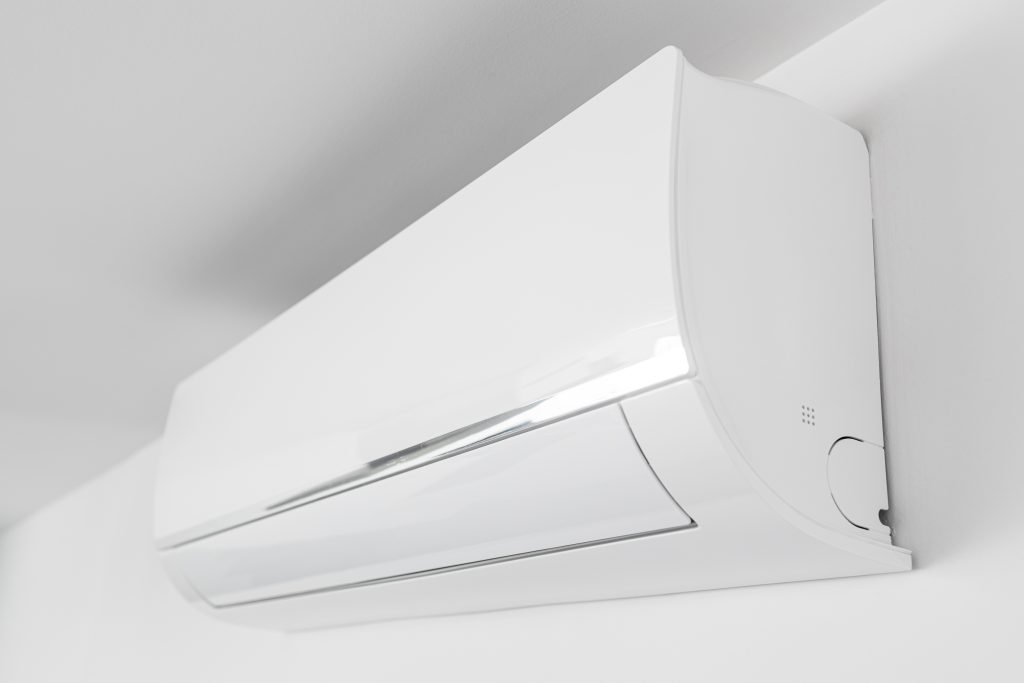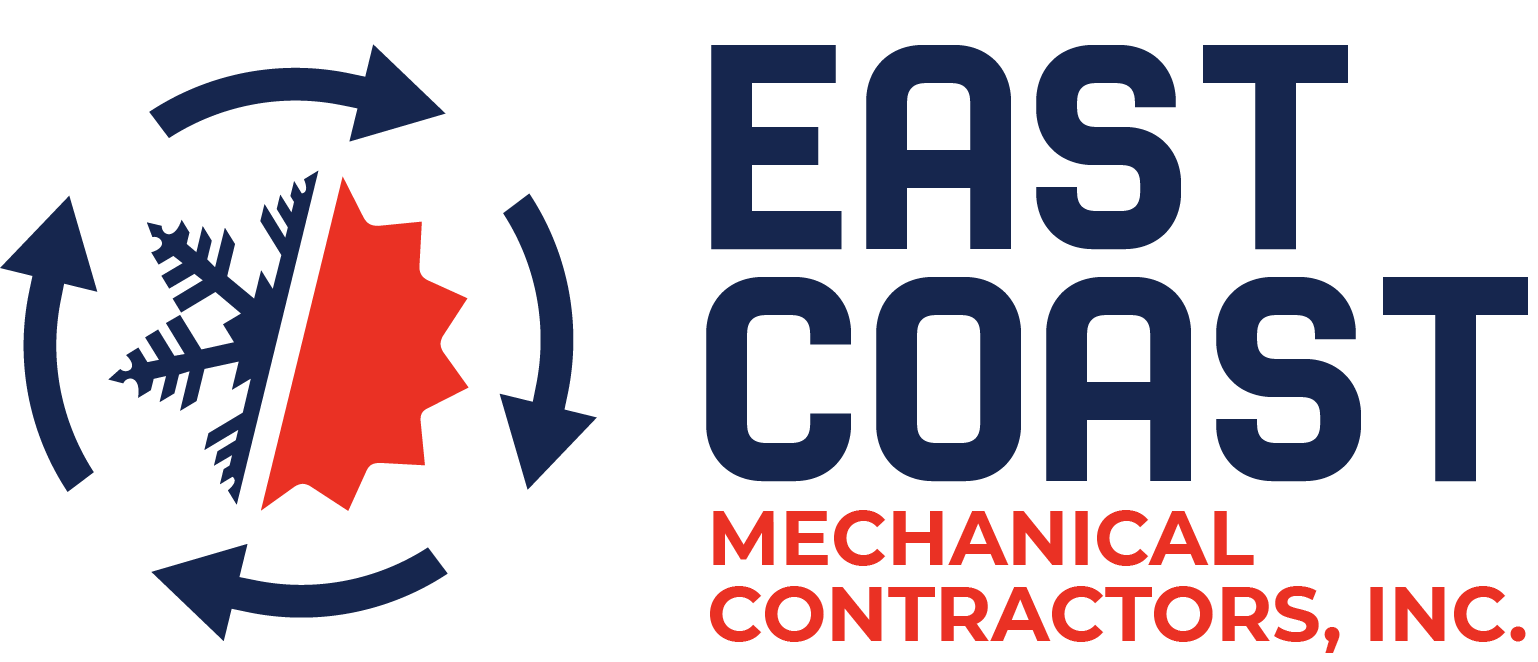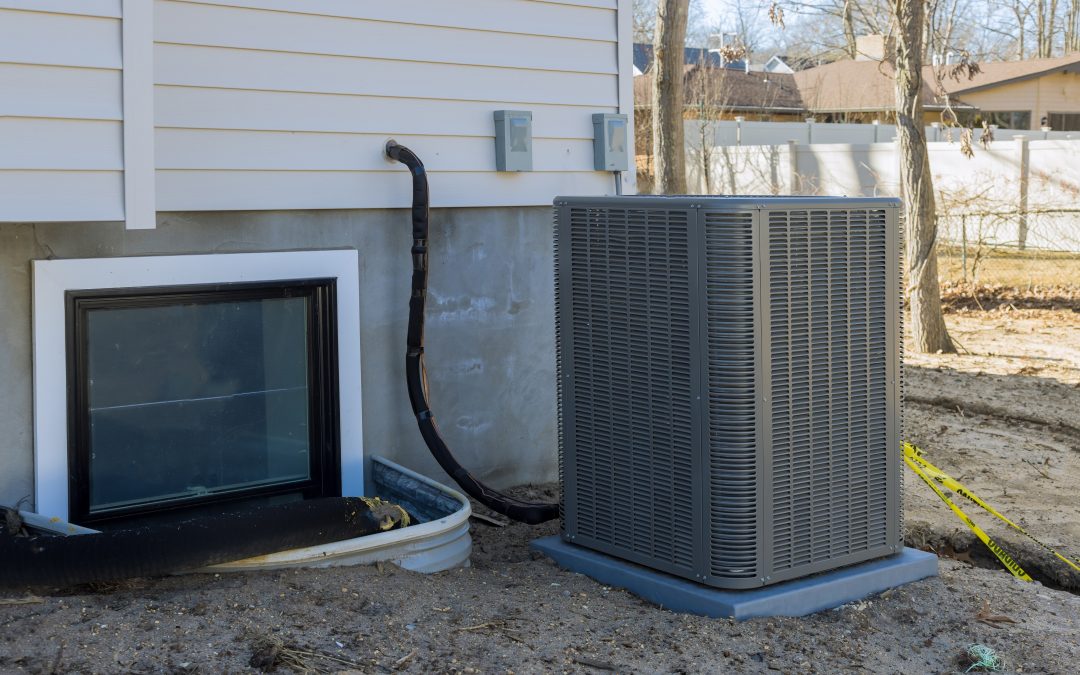With summer starting, air conditioning becomes an important aspect of home comfort, especially in humid areas like Monmouth County, NJ. There are four types of home air conditioning units and systems that work by removing heat. However, efficiency, aesthetics, and comfort levels can differ among them. This article explores the advantages and disadvantages of each unit/system to help you choose the best option for your home.
Types of Air Conditioning Units | Which is Best for You?
Window Air Conditioners:
Window units are a type of cooling equipment that can fit in both single- and double-hung windows. They are often used in apartments without central air conditioning, or to cool down individual rooms in bigger houses.
Advantages of window air conditioners:
Window air conditioners are a cost-effective option for adding air conditioning to your home. They are small, portable and easy to install without professional help. The newer models are much more efficient than the ones made a decade ago and come with warranties up to five years, which ensure that you get value for your money.
Disadvantages of window air conditioner:
Keep in mind that window air conditioners are designed to cool a limited area and cannot cool an entire home. Even if you live in an apartment, you will need to install multiple units to keep every room comfortable. It’s important to note that installing additional units will limit your ability to open the window and obstruct your view of the outside. Additionally, you may have to deal with the noise of the compressor located near the unit.
If you choose a bigger air conditioning unit, it may be challenging to install and remove it when winter comes. Efficiency of a window air conditioner can be affected by factors such as high ceilings, many windows and doors, exposure to direct sunlight, and cooling a room located on the top floor.
 Ductless mini-split air conditioners:
Ductless mini-split air conditioners:
A ductless mini-split is a type of heat pump that doesn’t need ductwork. It consists of two main parts: an outdoor compressor (like those used in central air conditioners) and an indoor evaporator coil with an air handling unit that can be mounted on a wall or ceiling. The two units are connected by a sealed conduit that passes through a hole in the wall.
Ductless mini-split air conditioners are specifically designed to cool homes that don’t have ductwork, or for smaller homes or add-ons where installing ductwork isn’t a viable option. Additionally, certain models of ductless ACs offer the highest efficiency ratings among all types of air conditioning systems.
Advantages of ductless mini-split air conditioners:
Ductless mini-splits are a great option for providing customizable cooling to specific areas of your home, while still being compact and energy-efficient. They offer central air conditioning benefits without requiring any invasive duct installation. Additionally, as they function as heat pumps, they can also provide heating during colder months.
Ductless mini-splits also operate as quietly as a regular fan. This is because the compressor is located outside, making them quieter than window or portable AC units. Also, they provide better home security, an unobstructed view of the outside, and the ability to open the window anytime since there’s no need to access it during installation.
Disadvantages of ductless mini-split air conditioners:
Compared to window or portable units, ductless mini-splits come with a higher price tag. Additionally, installation requires a skilled professional to drill a three-inch hole in the wall for connecting indoor and outdoor components. It’s also important to consider interior design when choosing where to mount the unit as it will be attached to the wall or ceiling of the room you want to cool or heat.
Portable air conditioners:
Portable air conditioning units are a type of AC that you can put on the floor instead of installing it directly in the window. These units work by intake air, taking out heat and moisture, and then releasing cool and dry air back into your room. They push hot and humid air outside through an exhaust hose that goes through the window. Portable ACs are only more suitable than window units if your windows are not the right type or if you can’t lift heavier window air conditioners.
Advantages of portable air conditioners:
Compared to window units, portable air conditioners are simpler to install. These units have casters attached to them, making it effortless to move them around to find the perfect spot. Additionally, the hose that leads out of the window does not block your view, and you can easily remove it if you want to open the window on a pleasant day.
Disadvantages of portable air conditioners:
Consumer Reports states that portable air conditioners may not provide the full amount of cooling they claim, leading to discomfort even with continuous operation. They are also relatively costly and less efficient compared to similar-sized window units, resulting in higher purchasing and operational expenses. Furthermore, most portable air conditioners can be noisy and require manual draining of water reservoirs as they extract excess humidity from the air.
Central air conditioning system:
If you want to cool your entire house and you already have ductwork, then central air is the best option. It works by circulating cooled air through ducts that have return and supply registers in every room. All the AC components are placed outside except for the air handler, which is typically shared with the furnace.
Advantages of central AC:
- Installing central air conditioning provides efficient cooling and improves indoor comfort. You can enjoy cooler temperatures with lower humidity and reduced energy bills. Additionally, since all the air conditioning components are located outside, the system operates silently and remains invisible.
- If you already have ductwork, installing the system is easy. However, it is necessary to hire a professional for the job. Since the system becomes a permanent fixture, it is a valuable investment for your home.
Disadvantages of central AC:
To keep your home’s central air conditioning system running well for a long time, it needs yearly maintenance. You’ll need to spend more upfront, especially if ductwork is required. However, if you’re only replacing an existing central AC unit, it’s less expensive than installing a new ductless mini-split system.
When comparing air conditioning systems, make sure to consider the appropriate size that you need. If you choose a unit that is too small, it will not be able to cool your space effectively on extremely hot days. Conversely, if you install a unit that is too large, it will turn off and on frequently, causing parts to wear out faster and preventing the unit from properly dehumidifying the space.
If you’re going with a central home air conditioner or a ductless mini-split, it’s importantr to have a licensed HVAC contractor install it. They will correctly size the unit to meet your exact cooling needs, which is a key part of the process for choosing the unit.
Looking for an Experienced Monmouth County HVAC Contractor?
Are you looking for a professional and reputable HVAC technician for residential or commercial air conditioning installation or other services? East Coat Mechanical Contractors Inc. is a family run HVAC company based in Monmouth County that has been in the industry for more than 30 years. We pride ourselves in providing “Quality and Value” residential and commercial heating and cooling services throughout Central New Jersey. We provide installation, repair, and maintenance solutions for all types of comfort systems. Service towns in the Central NJ area include: Freehold, Colts Neck, Manalapan, Matawan, Eatontown, Red Bank, Shrewsbury, Sea Girt, Spring Lake, Rumson, Deal and many more! For more information, you can contact us at (732)751-8877 or check out our website.
Monmouth County HVAC Specialists

